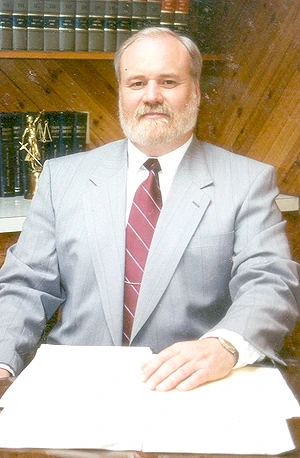By Mike Weland

Spokesman Review columnist Jim Kershner remembered how a renowned rural prosecutor started his career in Boundary County 50 years ago in today’s edition of “This Day in History.”
“From 1975: Boundary County in Idaho had churned through four prosecuting attorneys in two years, but now it hoped it had found a long-term solution: Randy Day, a 24-year-old University of Idaho law student.
“Day said he was ‘willing to give it a try.’
“’I have no doubts, none whatever, about my ability to handle the job,’ Day said.
“First, he must graduate from law school. Then he would serve as a legal intern to the current, temporary, county prosecutor. Then he must pass the state bar exam.
“At that point he could take over the contract from the current prosecutor, and then run for the office in the next election.”
Randy Day was not wrong about his ability to do the job. Boundary County was blessed at his willingness to “give it a try.” He served Boundary County with integrity and dedication for nearly 30 years.
It wasn’t first time the Spokesman Review mentioned the Bonners Ferry boy who grew up fishing with Kootenai River mud squishing between his toes.
Spokesman Hucklerries columnist D.F. Oliveria wrote September 25, 1995, “Boundary County Prosecutor Randy Day didn’t like the fact that the S-R quoted a source at the Ruby Ridge hearings saying Randy’s ‘actions are creating a cloud over this whole thing.’ According to the unnamed insider, Randy’s presence caused some FBI agents to take the Fifth Amendment rather than face criminal charges. Said Randy to the Bonners Ferry Herald: ‘They (the S-R) know I believe their editorial policy is bankrupt, and I’m not afraid to say so.’ OK, OK, Randy. Next time you run for judge, we’ll endorse you.”
On November 30, 2004, reporter James Hagengruber remembered Randy Day on his passing at age 54.
“Day gained a reputation that stretched far outside Idaho’s northernmost county with his work as a prosecutor during the standoff between federal agents and white separatist Randy Weaver,” he wrote. “Day oversaw an exhaustive criminal investigation following the 11-day standoff. County investigators were able to find clues, including a critical missing bullet, that were missed by the FBI’s evidence-gathering team.
“Day’s investigation lasted more than four years and prompted criticisms from some that Day was merely milking the juicy case to advance his legal career.
“In a 1995 interview, Day scoffed at the notion.
“’Career building is certainly not what motivates me,” he said.
“’I look at this more as a curse. It’s rotten luck, something that happened on my watch.’”
